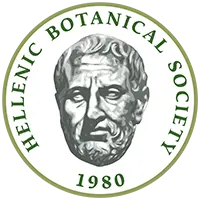Posidonia oceanica the marine plant that causes unwarranted fear in so many swimmers that say "do not swim above the seaweed," is an Angiosperm monocotyledon and not a seaweed (alga). It is more widely known as Poseidonia, as god Poseidon had chosen it as its favorite plant in antiquity.
It is an endemic Mediterranean seagrass, that spreads throughout almost all of the Mediterranean coastal zone. It grows in soft bottom substrates, creating extensive meadows that can reach to 45 m depth, when the waters are clear, providing food, protection and substrate to plenty organisms. Its contribution to primary productivity, biodiversity and indirect fishing is enormous, as it can accommodate up to 1,000 different species and provides equally important ecosystem services such as coastal protection from waves and erosion, recycling of inorganic nutrients, and "filtering" of the water column. Over the last decade, its ability to long-term carbon storage (C) has also been greatly emphasized, since it can influence the global cycle of C and the phenomena of climate change.
Posidonia meadows are threatened by anthropogenic activities (fishing with towed gear, coastal projects, etc.) all over the Mediterranean. Considering all the above and in conjunction with the very slow growth of the species (a meadow can make 100 years to recover), the species is protected under International Conventions (Barcelona Convention 1976 and Bern Convention 1979) as well as European Directives and Regulations (Habitats Directive (HD, 92/43 / EEC), European Regulation for Mediterranean Fisheries (1967/2006).
